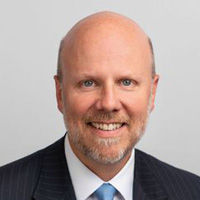Which Type of Donor-Advised Fund Is Right for You?
A Q&A with an expert at DonorsTrust delves into the details to help givers do the most good with their money.


Profit and prosper with the best of Kiplinger's advice on investing, taxes, retirement, personal finance and much more. Delivered daily. Enter your email in the box and click Sign Me Up.
You are now subscribed
Your newsletter sign-up was successful
Want to add more newsletters?

Delivered daily
Kiplinger Today
Profit and prosper with the best of Kiplinger's advice on investing, taxes, retirement, personal finance and much more delivered daily. Smart money moves start here.

Sent five days a week
Kiplinger A Step Ahead
Get practical help to make better financial decisions in your everyday life, from spending to savings on top deals.

Delivered daily
Kiplinger Closing Bell
Get today's biggest financial and investing headlines delivered to your inbox every day the U.S. stock market is open.

Sent twice a week
Kiplinger Adviser Intel
Financial pros across the country share best practices and fresh tactics to preserve and grow your wealth.

Delivered weekly
Kiplinger Tax Tips
Trim your federal and state tax bills with practical tax-planning and tax-cutting strategies.

Sent twice a week
Kiplinger Retirement Tips
Your twice-a-week guide to planning and enjoying a financially secure and richly rewarding retirement

Sent bimonthly.
Kiplinger Adviser Angle
Insights for advisers, wealth managers and other financial professionals.

Sent twice a week
Kiplinger Investing Weekly
Your twice-a-week roundup of promising stocks, funds, companies and industries you should consider, ones you should avoid, and why.

Sent weekly for six weeks
Kiplinger Invest for Retirement
Your step-by-step six-part series on how to invest for retirement, from devising a successful strategy to exactly which investments to choose.
When people first think of donor-advised funds (DAFs), they naturally turn to the national funds — the big-box stores of the donor-advised world. Yet, in 2021, nearly 30% of our new accounts at DonorsTrust rolled over from large, national DAF providers, such as Fidelity Charitable.
Community foundations and Jewish federations were among the first to offer donor-advised funds in the 1930s. Institutions caught on over the past three decades, and DAFs have been flourishing ever since. As of 2020, there are an estimated 1,000 DAF-sponsor organizations in the United States, according to the National Philanthropic Trust.
With a sharp increase in charitable giving over the past two years, new generations are looking for ways to donate to charity using donor-advised funds, whether it be with a mission-driven fund or donating to charities at the local or national level. Below are some of the most important questions to ask when considering whether a donor-advised fund makes sense for one’s unique charitable goals.
From just $107.88 $24.99 for Kiplinger Personal Finance
Become a smarter, better informed investor. Subscribe from just $107.88 $24.99, plus get up to 4 Special Issues

Sign up for Kiplinger’s Free Newsletters
Profit and prosper with the best of expert advice on investing, taxes, retirement, personal finance and more - straight to your e-mail.
Profit and prosper with the best of expert advice - straight to your e-mail.
Q: First, why should I consider using a DAF sponsor group to meet my philanthropic goals?
Answer: DAFs work as an investment account for charitable organizations near and dear to your heart, with the added bonus of immediate tax deductions when you contribute money, securities or other assets. Those funds can then undergo tax-free growth until you decide to put them toward the charity of your choosing. This is particularly beneficial given the state of philanthropic giving in the United States, where some charities are struggling to make ends meet.
Through DAFs, you can help non-profit organizations weather the storm by supplying far-reaching funds that pay out over time and benefit the rainy-day needs of charities. Along with being one of the fastest-growing and most effective ways to give, many DAF-sponsor groups can provide insight and guidance for the type of charities you want to give to.
Q: What are the types of sponsor groups I can use to create a DAF?
Answer: There are three different types of sponsor groups a donor can choose from. The first are community foundations, founded by and for people in a particular community. Community foundations vary in size, capacity and reach but are a good option for donors with a variety of interests and financial resources, lending to long-term assets for a particular sector of society in their geographic area.
Second are national funds, which differ from community funds in a few ways — whereas other sponsors provide DAFs in addition to their existing work, national funds solely operate to service DAFs with a key focus on fundraising and grantmaking. There are two types of national funds: funds affiliated with financial institutions, such as Charles Schwab or Vanguard. These are known as commercial gift funds. And non-commercial organizations, which on the other hand are national funds that work independently, like the National Philanthropic Trust and United Charitable, or those that are faith-based, including the National Christian Foundation or Jewish National Fund.
Last but not least are mission-driven funds. And they are driven by just that — a mission, either related to a particular issue, faith or institution. Unlike community foundations, these groups go beyond an individual community and are organized behind a shared identity or cause that extends outside certain geographical areas. Some of the most common types of mission-driven funds you may be familiar with include hospitals, universities, rotary clubs and topic-driven non-profit organizations.
Q: What types of donors should consider using a community foundation sponsor group?
Answer: If you have a close connection to a certain city or town, or a family that has roots in an area you’d now like to give back to, utilizing a community foundation is the right choice for you. These foundations have a keen understanding of the community’s needs and a history of overcoming obstacles with your donation. The ability to garner that knowledge and vet local non-profits allows you to feel secure in the knowledge that your charitable choices are best serving the community you love.
Additionally, community funds provide contributors not only with DAF opportunities but field-of-interest funds, earmarked funds and scholarship funds among others — meaning your giving can make a major impact just the way you want it to.
Q: I want to target my giving to a specific cause, such as childhood hunger. Which type of sponsor group is best suited for me?
Answer: Through the use of single-issue non-profits, mission-driven funds are able to better connect you to your goal of supporting this particular cause, as well as a larger network of contributors that wishes to do the same. Selecting a mission-driven fund means you know that the organization believes in the efforts and issues you do, and has the vetted experience and ability to make a difference.
This expertise and guidance can help you make the smartest giving choices with your money, including tying DAF funding to further giving by the family or donor, or reaching a larger specific goal, such as impact investing or international giving.
Q: What else should I know when selecting a DAF sponsor group?
Answer: Here are additional key considerations to keep in mind when choosing which sponsor group is best for you:
- Some community foundations are better equipped than others. Smaller foundations in more rural areas may have less technological and administrative capabilities, while others have resources where you can manage your DAFs online.
- National commercial funds do not always offer individualized support. While they can provide unique grantmaking services, many do not offer expertise on giving in particular area or to a specific issue. Because of this, they do not provide networking opportunities with other like-minded donors that you can get within other groups.
- Community foundations can vary in many ways. This can include in investment costs, ability to accept certain assets and DAF minimums. Make sure you check out these details before selecting which community foundation is best for you.
- Similarly, national fund resources and capabilities also vary. Each can offer a number of different features and benefits, minimum-fund amounts, a variety of investment options, and different payout rules. If you have a wealth manager or adviser, they may not have access to all DAF sponsors, and can be compensated differently by each.
- Want your money to be put to work quickly? Mission-driven-fund providers — also known as single-issue — have the highest payout rates among the various types of providers: 28.8% in 2019 compared to 16.4% for community foundations in 2019 and 24.2% for the national funds. The higher payout rate suggests this type of fund is good for donors keen on putting their charitable dollars into action quickly toward a cause they believe in.
Donor-advised funds are one of the fastest-growing financial tools on the market — and for good reason, as the tool helps givers simplify, secure and grow their charitable dollars. Picking the right partner in your giving comes down to what you value the most.
Profit and prosper with the best of Kiplinger's advice on investing, taxes, retirement, personal finance and much more. Delivered daily. Enter your email in the box and click Sign Me Up.

Lawson Bader has served as president and CEO of DonorsTrust since 2015. He has had 20 years' experience leading free-market research and advocacy groups, including the Competitive Enterprise Institute and the Mercatus Center. DonorsTrust is a community foundation safeguarding the intent of accountholders who seek to promote charities that address civic concerns, are mostly privately funded, do not increase the size and scope of government, and promote free enterprise and personal responsibility.
-
 How Much It Costs to Host a Super Bowl Party in 2026
How Much It Costs to Host a Super Bowl Party in 2026Hosting a Super Bowl party in 2026 could cost you. Here's a breakdown of food, drink and entertainment costs — plus ways to save.
-
 3 Reasons to Use a 5-Year CD As You Approach Retirement
3 Reasons to Use a 5-Year CD As You Approach RetirementA five-year CD can help you reach other milestones as you approach retirement.
-
 Your Adult Kids Are Doing Fine. Is It Time To Spend Some of Their Inheritance?
Your Adult Kids Are Doing Fine. Is It Time To Spend Some of Their Inheritance?If your kids are successful, do they need an inheritance? Ask yourself these four questions before passing down another dollar.
-
 The 4 Estate Planning Documents Every High-Net-Worth Family Needs (Not Just a Will)
The 4 Estate Planning Documents Every High-Net-Worth Family Needs (Not Just a Will)The key to successful estate planning for HNW families isn't just drafting these four documents, but ensuring they're current and immediately accessible.
-
 Love and Legacy: What Couples Rarely Talk About (But Should)
Love and Legacy: What Couples Rarely Talk About (But Should)Couples who talk openly about finances, including estate planning, are more likely to head into retirement joyfully. How can you get the conversation going?
-
 How to Get the Fair Value for Your Shares When You Are in the Minority Vote on a Sale of Substantially All Corporate Assets
How to Get the Fair Value for Your Shares When You Are in the Minority Vote on a Sale of Substantially All Corporate AssetsWhen a sale of substantially all corporate assets is approved by majority vote, shareholders on the losing side of the vote should understand their rights.
-
 How to Add a Pet Trust to Your Estate Plan: Don't Leave Your Best Friend to Chance
How to Add a Pet Trust to Your Estate Plan: Don't Leave Your Best Friend to ChanceAdding a pet trust to your estate plan can ensure your pets are properly looked after when you're no longer able to care for them. This is how to go about it.
-
 Want to Avoid Leaving Chaos in Your Wake? Don't Leave Behind an Outdated Estate Plan
Want to Avoid Leaving Chaos in Your Wake? Don't Leave Behind an Outdated Estate PlanAn outdated or incomplete estate plan could cause confusion for those handling your affairs at a difficult time. This guide highlights what to update and when.
-
 I'm a Financial Adviser: This Is Why I Became an Advocate for Fee-Only Financial Advice
I'm a Financial Adviser: This Is Why I Became an Advocate for Fee-Only Financial AdviceCan financial advisers who earn commissions on product sales give clients the best advice? For one professional, changing track was the clear choice.
-
 I Met With 100-Plus Advisers to Develop This Road Map for Adopting AI
I Met With 100-Plus Advisers to Develop This Road Map for Adopting AIFor financial advisers eager to embrace AI but unsure where to start, this road map will help you integrate the right tools and safeguards into your work.
-
 The Referral Revolution: How to Grow Your Business With Trust
The Referral Revolution: How to Grow Your Business With TrustYou can attract ideal clients by focusing on value and leveraging your current relationships to create a referral-based practice.